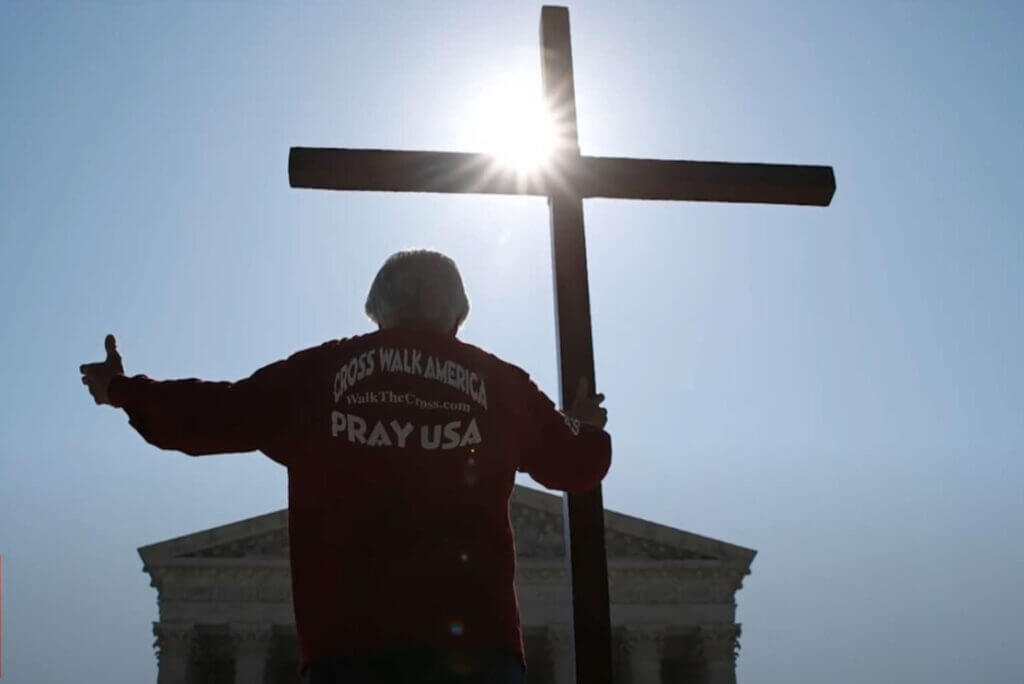The Supreme Court released opinions Wednesday on California’s Proposition 8 state marriage amendment (Prop 8) and the Federal Defense of Marriage Act (DOMA).
Justice Anthony Kennedy, writing the DOMA decision under an Equal Protection rationale, strick down Section 3 of DOMA, which defines marriage as one man and one woman for purposes of federal law and federal benefits, specifically joint federal tax returns, Social Security survivor benefits and federal employee health insurance and medical benefits. Not at issue in this ruling are the other parts of DOMA, including the section that says states may define their own marriage policy and are not required to accept a sister state’s same-sex marriage.
“DOMA singles out a class of persons deemed by a State entitled to recognition and protection to enhance their own liberty,” wrote Kennedy. Justice Scalia wrote in his dissent that the court’s errors, both in explaining its jurisdiction and its decision, “spring from the same diseased root: an exalted conception of the role of this institution in America.”
Regarding the Prop 8 case, Chief Justice John Roberts, writing for the 5-4 decision of the court, dismissed the case on standing, meaning that the court lacks jurisdiction to reach the merits because the Prop 8 intervenors lacked standing to litigate the case after the California state attorney general ceased defending it following the lower federal district court opinion.
This means that the lower court governing the northern district of California stands. Thus, only the decision striking down Prop 8 by the lower district court remains in effect. The remaining parts of California are unaffected. No doubt litigation will ensue in the southern and middle districts of California.
“Today, the United States Supreme Court has lost its legitimacy as an arbiter of the Constitution and the rule of law,” notes Mat Staver, founder and chairman of Liberty Counsel. “Today is the death of the court’s legacy, because the decision in the federal Defense of Marriage Act case defies logic and is a pure invention of a handful of justices.”
Justice Sandra Day O’Connor, writing in Planned Parenthood of Southeastern Penn. v. Casey, 505 U.S. 833, 864-869 (1992), candidly acknowledged, “The root of American governmental power is revealed most clearly in the instance of the power conferred by the Constitution upon the Judiciary of the United States and specifically upon this court. As Americans of each succeeding generation are rightly told, the court cannot buy support for its decisions by spending money and, except to a minor degree, it cannot independently coerce obedience to its decrees. The court’s power lies, rather, in its legitimacy, a product of substance and perception that shows itself in the people’s acceptance of the Judiciary as fit to determine what the Nation’s law means and to declare what it demands.
“The underlying substance of this legitimacy is of course the warrant for the court’s decisions in the Constitution and the lesser sources of legal principle on which the court draws. The court must take care to speak and act in ways that allow people to accept its decisions on the terms the court claims for them, as grounded truly in principle, not as compromises with social and political pressures having, as such, no bearing on the principled choices that the xourt is obliged to make. Thus, the court’s legitimacy depends on making legally principled decisions under circumstances in which their principled character is sufficiently plausible to be accepted by the Nation.”
Stave comments, “Marriage pre-dates government and civil authorities. No civil authority, including the Supreme Court, has the authority to redefine marriage. Marriage was not created by religion or government and is ontologically a union of one man and one woman. For any court or civil authority to think it has the authority to redefine marriage is the height of hubris. Deconstructing marriage will hurt children and society.
“While today’s decision on DOMA did not redefine marriage, it has provided the foundation on which to do so. Today’s decision is the equivalent of the 1972 contraception decision involving unmarried couples and the so-called right to privacy on which the 1973 abortion decision in Roe v. Wade was constructed. Today, the Supreme Court has damaged its image, lost legitimacy, and set in motion considerable harm to society and to the state of the union.”
See an error in this article?
To contact us or to submit an article























